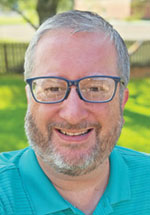Sight Unseen / Brandon A. Evans
Saving Judas

Have you ever prayed for the salvation of Judas?
It’s kind of a bizarre—even borderline sacrilegious—question, for no less than two reasons.
The first of which, of course, are the very words of Jesus Christ regarding his betrayer: “It would have been better for that man if he had never been born” (Mt 26:24).
A reasonable and nearly universal interpretation of those words is that the only thing worse than non-existence is an eternity in hell.
And yet, the Catholic Church has refrained from pronouncing a definitive judgment on the matter. It hasn’t stopped everyone else from believing it (and with good reason), but the final step of saying with absolute clarity that any particular person is in hell has been intentionally withheld.
But there is another objection: no matter what you believe, the death of Judas has already happened. His fate has been decided, his judgment given.
Or has it?
As we understand the nature of history, events in the past cannot be changed. You can’t pray that someone didn’t get sick or that some disaster didn’t happen or that you really did get that job. But there is a gaping loophole in this worldview: most of what happens in the human heart and mind is not known to the rest of us nor shared in any record.
What appears to have occurred one way may have occurred another. And so we can pray that a person repented before death, or felt a respite from the pain of disease, or that all along had a deep happiness despite an outward sadness. It’s why we don’t just pray that people are eventually freed from purgatory: we pray that they made it that far in the first place, even though from our point of view such a thing was already decided years ago.
Since God exists outside of time and space, all things at all times that can be in play are in play.
And the ability of prayer to work outside the present—to alter, as it were, both past and future—is where the fate of Judas comes back in.
By all accounts, he hung himself in despair. Though grievously sorrowful for his betrayal, he did not muster the humility to ask Jesus himself for forgiveness. Such contrition would’ve sufficed to wipe clean his ghastly sin. He would’ve been redeemed along with the rest of our sorry lot on that terrible Good Friday.
But he didn’t do it. He ran from Jesus, not toward him. He hurried blindly to doom and death instead.
Again, though, there is a loophole, one just the size of the eye of a needle: in the moment between falling from the tree and the rope catching his neck, some light could’ve entered his mind: some vision of a Christ who somehow still loved him, who somehow still offered a forgiving hand. Judas’ conscience could have moved his final thought to repentance; to have said to Jesus, simply, “I’m sorry.”
We don’t know.
And there, at last, is the way that certainty yields to hope.
If the Church won’t pronounce the meaning of Jesus’ words to Judas, then anything is still possible.
Maybe it would’ve been better if Judas had never been born because the saying is a turn of phrase—something you say in anger about a person who lets an unbelievable act of evil pass through their hands.
Maybe, against all hope, Jesus’ words aren’t so much a final condemnation as much as a challenge. Are we bold and reckless enough to ask for the impossible?
The question of Judas’ salvation is not a foolish one. It’s absolutely relevant to a whole lot of us who need that kind of hope for ourselves. The Church has to be able to look at people in those times that they don’t think they can or should be forgiven and offer the heart of a Savior whose desire for pardon is deeper than whatever shame and darkness we can muster.
So long as this world endures, the story of every person is not yet finished. Through the power of prayer, the dead still live in the precious secrecy of their last moments.
The unseen and unrecorded are waiting to be decided, even if it seems like they already are.
There is still time.
(Sight Unseen is an occasional column that explores God and the world. Brandon A. Evans is the online editor and graphic designer of The Criterion and a member of St. Susanna Parish in Plainfield.)†
